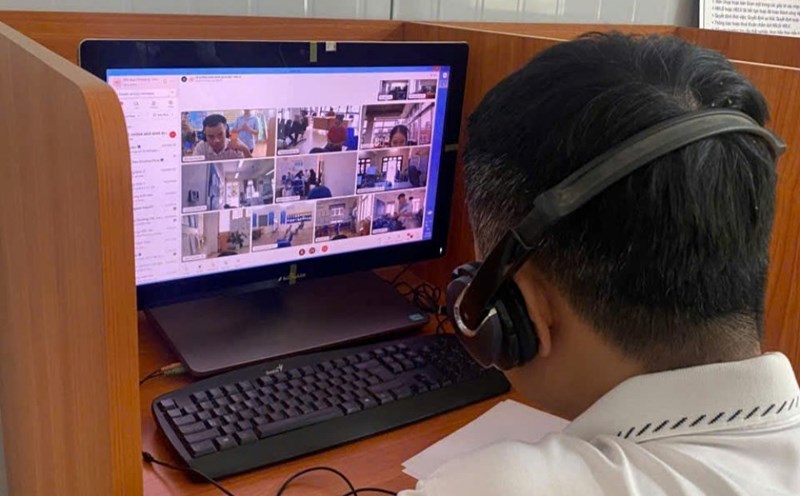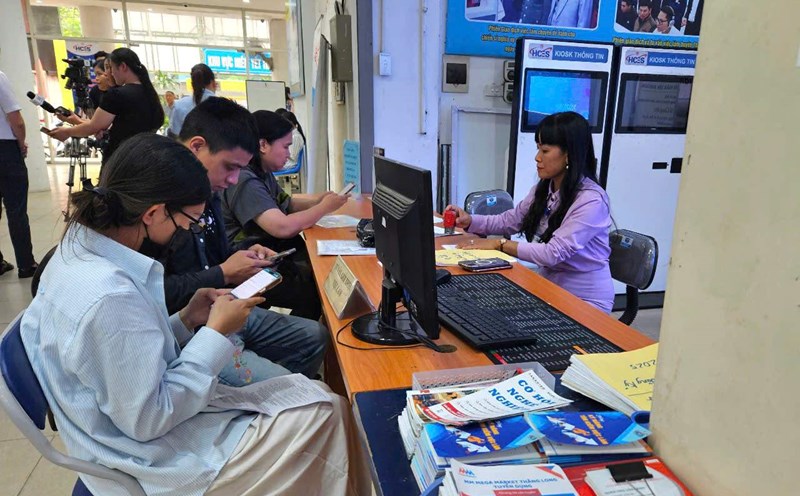In recent days, during the process of reviewing the Law on Education, I have listened to the opinion of the Law reviewing agency that vocational secondary school students should study some additional cultural subjects according to the high school program (high school) to take the high school graduation exam, thereby possessing both a vocational degree and a high school degree in just 3 years. The goal is explained to create equivalent value between two degrees, helping to expand learning and job opportunities. But if I put this story into Vietnamese reality and international practice, I find many contradictions.
First of all, I think we must clearly distinguish between equivalent in legal value and equivalent in academic content. High school and high school are two different training streams: High school focuses on academic knowledge, preparing for university; High school focuses on vocational skills, with a streamlined culture. If we say equivalent in content, then secondary school students must study a large amount of additional knowledge, equivalent to one school year, to be able to meet the output standards like high school. If we only study a few subjects and then take the graduation exam to be recognized as equivalent, then it is just a form equivalent, and there is no mechanism to ensure quality.
The problem is not only that when thinking about the current high school graduation consideration mechanism. 50% of the graduation score is exam score, 50% is high school transcript score - all of which are cultural subjects. THN students have transcripts covering many subjects, so where can we get the equivalent of "50% of transcript scores" to add to the exam scores? If this calculation method is still applied, it is clearly un standard, unfair to high school students and also unreasonable in terms of expertise.
This proposal also leads to another paradox: junior high school students must both learn a trade and study all cultural subjects to take the high school graduation exam, meaning that the learning volume is as heavy - or even heavier - as high school students, but still limited to 3 years. I wonder, is there any country in the world that designs such a roadmap but still ensures the quality of both types of training?
When I compare it with international experience, I see the difference even more.
In Germany, vocational school students who want to go to university must study an additional cultural certificate (Abitur or Fachabitur) through a separate regulatory stage. In Japan, students of technical schools (kato senmon gakko) who want to get a high school diploma must study a full range of cultural subjects according to national standards and take the high school graduation exam for independent candidates (Kōsotsu Nintei Shiken).
This additional study takes place outside the vocational training program and often takes more time, cannot be "packaged" in three years as proposed in Vietnam. In Singapore or France, too: Vocational programs have clear legal value, but to switch to the academic flow, one must go through a full conversion course, not "relying" on a few subjects to take the same exam with high school students.
Therefore, if this proposal is implemented, there will be three negative impacts that I see.
First, it violates the traffic diversion goal: Students choose VET not because of their passion for the profession, but because of a "detour" to get a high school diploma, causing the quality of vocational training to decline.
Second, it thins the ability standards of high school: Both vocational training and express cultural learning are difficult to meet academic standards.
Third, it reduces the prestige of Vietnam's degrees when integrating: International universities and employers find it difficult to transparently recognize a "two in one" degree without a quality assurance mechanism. Is there any country that recognizes both degrees of this type to study abroad or work abroad when the competency standard is not standardized?
I remember that since 1993, according to Decree 90/CP, Vietnam has established a vocational education system with a very clear goal: Creating a parallel learning and career path, separate from high school, in line with the practices of 100% of countries with vocational education. So why are you now trying to "combine" and then blur the line between two flows, going against the principle of flowing that the world considers the norm?
To integrate internationally, the first thing is to respect the principles that are being applied internationally: A vocational degree and a high school degree must be recognized equally in legal value within its scope, but separately in content and competency standards. The law must establish such a correct criminalship, not allowing "equivalent" ideas to shake the foundation of the education system.
Hopefully, this time, decisions on the degree system will truly come from practice and comply with international standards, instead of repeating the waste.












